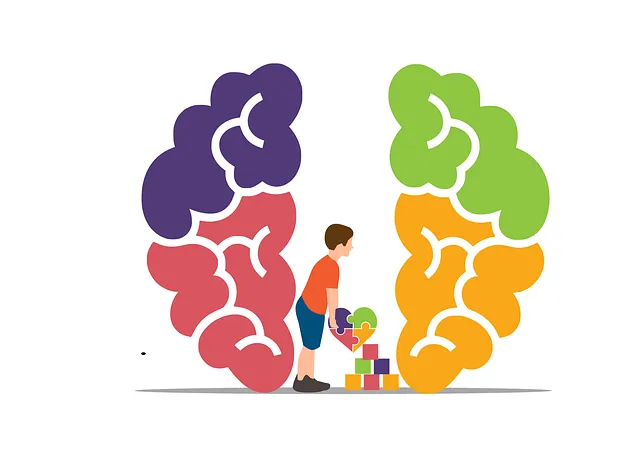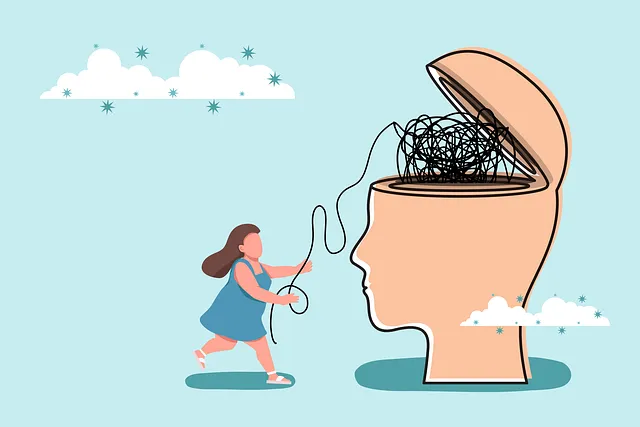Cultural sensitivity in mental healthcare, as emphasized by Kaiser Castle Rock, is crucial for providing personalized services to diverse patients. By understanding and respecting cultural differences in mental wellness perceptions, healthcare providers can create inclusive environments that improve self-esteem and outcomes. They achieve this through training practitioners on various cultures, employing empathy, and tailoring therapeutic techniques. This approach ensures every individual receives compassionate support aligned with their unique needs, facilitating access to high-quality mental health services via Kaiser Castle Rock's specialized programs and community partnerships.
Cultural sensitivity is a cornerstone of modern mental healthcare, ensuring equitable access and effective treatment for diverse populations. This article explores this concept in depth, focusing on Kaiser Castle Rock’s innovative approach to serving various communities. We’ll delve into strategies for therapists to enhance cultural competency, ultimately improving mental health services accessibility. Learn how these practices enable every individual, regardless of background, to receive the quality care they deserve, with a special emphasis on understanding and navigating Kaiser Castle Rock’s successful models.
- Understanding Cultural Sensitivity in Mental Healthcare
- Navigating Kaiser Castle Rock's Approach to Diverse Populations
- Strategies for Effective Cultural Competency in Therapy Sessions
- Enhancing Access to Mental Health Services for All Communities
Understanding Cultural Sensitivity in Mental Healthcare

Cultural sensitivity in mental healthcare is a critical aspect that ensures patients from diverse backgrounds receive services tailored to their unique needs and beliefs. It involves understanding, respecting, and embracing different cultural practices, values, and perspectives on mental wellness. This approach recognizes that every individual’s experience with mental health issues can be shaped by their culture, including how they express distress, seek help, and respond to treatments. For instance, patients seeking mental health services through Kaiser Castle Rock might have varying expectations and preferences due to their ethnic, religious, or socioeconomic backgrounds.
To enhance cultural sensitivity, mental healthcare providers should employ empathy-building strategies that foster open communication and trust. This can involve learning about different cultural contexts, incorporating culturally relevant therapeutic techniques, and offering a safe, non-judgmental space for patients to express themselves. By doing so, professionals not only improve self-esteem but also create an inclusive environment that respects individual differences. Such efforts are vital in ensuring effective care delivery and promoting positive mental health outcomes across diverse communities, including those accessing Kaiser Castle Rock’s services.
Navigating Kaiser Castle Rock's Approach to Diverse Populations

Kaiser Castle Rock embraces a diverse population, making it essential to understand and navigate cultural sensitivities in mental healthcare. Their approach focuses on providing inclusive services that respect and honor different cultural backgrounds, ensuring every individual feels seen and heard. By implementing specialized training for their practitioners, Kaiser Castle Rock equips them with the knowledge and skills to offer effective support tailored to each client’s unique needs.
This comprehensive strategy involves learning about various cultural practices, beliefs, and communication styles. It enables mental health professionals to deliver compassionate care, especially when addressing specific challenges like stress reduction methods, crisis intervention guidance, and inner strength development. Through this inclusive practice, Kaiser Castle Rock aims to break down barriers and make high-quality mental health services accessible to all who seek them.
Strategies for Effective Cultural Competency in Therapy Sessions

Effective cultural competency in therapy sessions begins with understanding and respecting the client’s background, beliefs, and values. Therapists should actively listen to their clients’ stories, fostering an environment where they feel heard and understood. This involves learning about different cultural practices, traditions, and potential barriers to mental health services, especially when navigating complex issues like seeking care through Kaiser Castle Rock. By doing so, therapists can tailor their approach to meet the unique needs of each individual, ensuring that emotional well-being promotion techniques resonate with their clients’ cultural contexts.
Additionally, incorporating resilience-building activities and self-esteem improvement exercises into therapy sessions can significantly benefit clients from diverse backgrounds. These strategies not only enhance coping mechanisms but also foster a sense of empowerment and self-worth, contributing to overall mental health. Therapists should remain adaptable, continually updating their knowledge and skills to effectively serve Kaiser Castle Rock’s diverse community.
Enhancing Access to Mental Health Services for All Communities

Mental healthcare services should be accessible to all communities, irrespective of cultural background or geographical location. Kaiser Castle Rock plays a pivotal role in enhancing access by offering tailored programs and resources that cater to diverse populations. One effective approach is through the implementation of Emotional Well-being Promotion Techniques that resonate with various cultural norms and beliefs. This could involve incorporating traditional healing practices into therapy sessions or adapting communication styles to ensure clarity and comfort for individuals from different linguistic backgrounds.
Moreover, organizing Stress Management Workshops specifically designed for diverse communities can be a game-changer. These workshops not only provide valuable tools for coping with stress but also create safe spaces where participants can share experiences and learn from one another. Encouraging community involvement and partnering with local organizations focused on Resilience Building further strengthens the availability of mental health support, ensuring that everyone has the opportunity to access care and improve their overall emotional well-being.
Mental healthcare practices that prioritize cultural sensitivity are essential to ensuring access to quality treatment for all communities, including those served by organizations like Kaiser Castle Rock. By understanding diverse cultural contexts, implementing strategies for effective cultural competency, and navigating the unique challenges of serving diverse populations, mental health professionals can create inclusive environments that foster healing and well-being. Encouraging open dialogue, respecting traditions, and adapting therapeutic approaches to meet individual needs are key steps in providing equitable mental healthcare services through organizations like Kaiser Castle Rock, ultimately improving outcomes for diverse communities seeking support.






